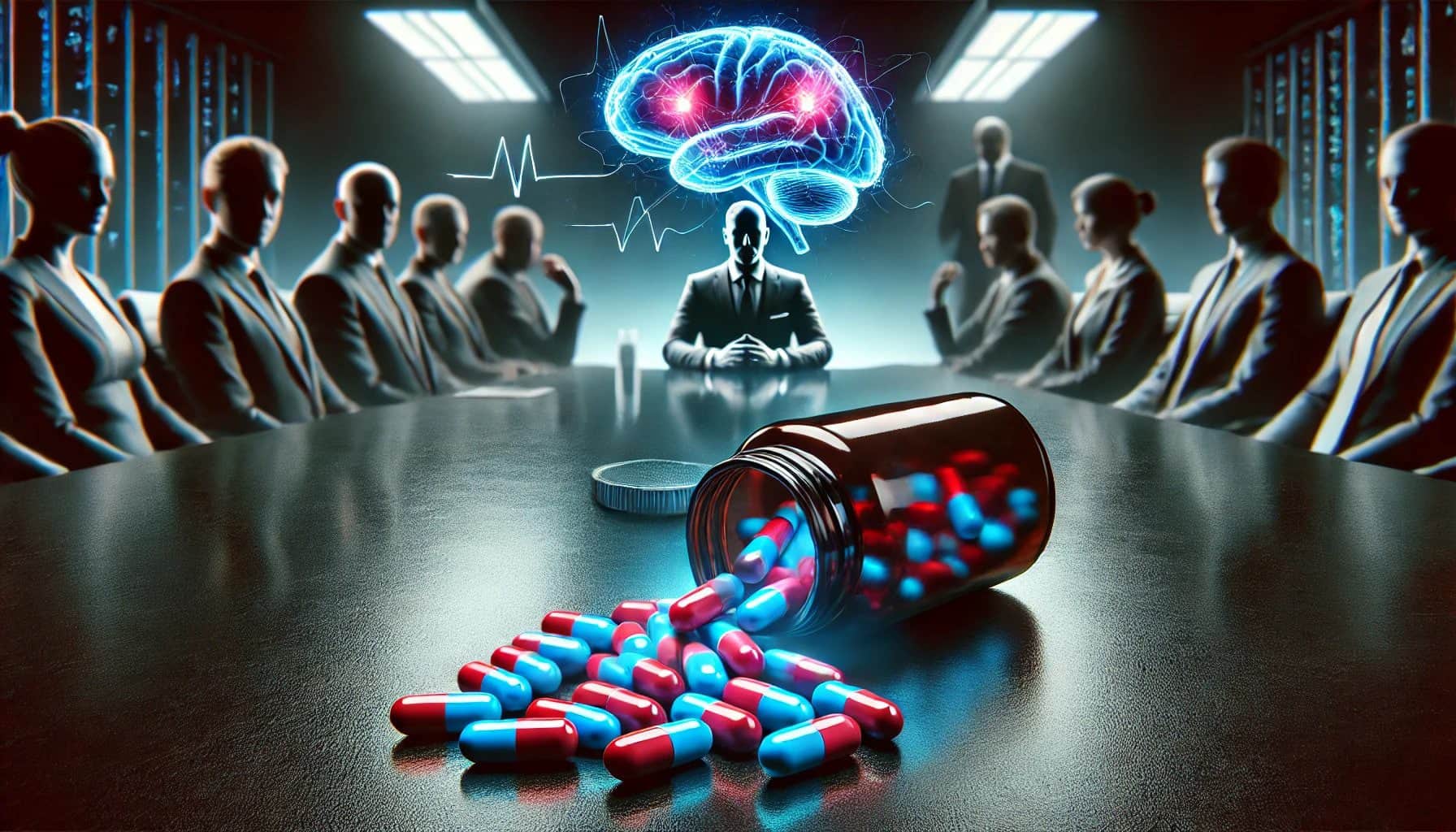ADHD Meds Are Just Legal Cocaine And It’s Worse
Let’s get one thing straight before the internet explodes. ADHD is real. It’s not laziness… and no… It’s not a personality quirk. Nor is it a trendy excuse for why you forgot to reply to that email. ADHD is a neurodevelopmental condition that makes life feel like trying to watch 47 different TV channels at once while someone shouts random instructions at you. But let’s talk about the so-called solution. Because if you think ADHD meds are the holy grail of focus, you might want to sit down for this one.
The Dirty Secret Behind ADHD Medications
Pssst. There’s something the pharmaceutical industry doesn’t want plastered all over the internet. I’m sure you won’t be overly surprised to hear that the most commonly prescribed ADHD medications (Ritalin, Adderall, Vyvanse) are chemically similar to cocaine. But wait… before you accuse me of fearmongering, this isn’t even a conspiracy theory.
- Both ADHD meds and cocaine work by flooding the brain with dopamine.
- Both can skyrocket heart rate, blood pressure, and anxiety.
- Both can cause dependency and withdrawal symptoms if stopped suddenly.
- Both can make people feel invincible before they inevitably crash.
The difference? One comes in a prescription bottle, and the other gets you arrested.
Unlock peak brain performance with science-backed biohacks. Join free now & get your guide for just £4.99 (45% off)!

ADHD Meds: But It’s Different Because It’s Prescribed
I can already hear the rebuttals. But ADHD medication is carefully dosed. It’s been studied. Doctors prescribe it. Sure. And opioids were once marketed as a safe pain relief option. That turned out great, didn’t it?
Look, I’m not saying ADHD meds are inherently evil. They work for some people, but let’s not pretend they’re a perfect, risk-free solution. The long-term effects of daily stimulant use? Understudied at best, concerning at worst. And yet, millions of people, including kids as young as six, are given these drugs as a first-line treatment without ever exploring alternatives.
The Dopamine Trap: Why Medication Alone Fails
Here’s the real problem. ADHD isn’t just a dopamine issue. Yes, stimulant meds boost dopamine, but what happens when the pill wears off? You crash. Hard.
- The afternoon slump hits like a truck. Your brain, used to its dopamine hit, now struggles to function without it.
- Rebound symptoms kick in. Mood swings, irritability, brain fog, the withdrawal effect that nobody tells you about.
- Tolerance builds. What worked last month suddenly feels weaker, so dosages get adjusted.
- Your natural dopamine system stops trying. After awhile, your brain begins to depend on the medication to function instead of developing its own regulation skills.
Imagine hiring a personal trainer to lift the weights for you. Great! You get the illusion of progress, but are you actually building strength?
Big Pharma Doesn’t Want You to Have Options
Why aren’t doctors pushing alternatives before ADHD meds? Because Big Pharma has zero incentive to sell you long-term solutions.
- A bottle of Adderall? Recurring customer for life.
- Diet, lifestyle, and functional medicine approaches? No profit.
If there was an ADHD treatment that actually helped people regulate dopamine naturally without needing a pill every day, that would be a financial disaster for the industry. And you don’t have to be a conspiracy theorist to see how that works.
What Should You Do Instead?
If ADHD meds work for you, great. But if you’re looking for alternatives that don’t involve rewiring your brain like a lab experiment, start here.
- Nutrition that fuels dopamine regulation. Hint, your diet might be making your ADHD worse.
- Targeted supplementation. Things like magnesium, omega-3s, and L-Tyrosine actually support focus without the crash.
- Exercise and movement. Dopamine’s natural reset button that Big Pharma can’t patent.
- Biohacking focus with natural stimulants. Lion’s Mane, caffeine timing, cold exposure, because nature figured this out long before pharmaceutical companies did.
ADHD Meds: A Tool, Not a Lifeline
The takeaway? We aren’t saying that ADHD medication is evil, but it’s unrealistic to suggest it’s a miracle cure either. It’s a tool, and just as with any tool, it should be used with caution, not as a default solution. The problem is, most people are never told they have a choice. And that? That’s where the real issue lies.
Most people only hear about the standard ADHD medication list, Ritalin, Adderall, Vyvanse. But there are alternatives that can help regulate focus, impulse control, and dopamine naturally. The trouble is, those solutions aren’t nearly as profitable as a lifelong prescription.
Join Our Community
If you’re over the same tired ADHD advice that boils down to “just take the pills and get on with it”, welcome. You’re in the right place. We talk about actual, real-life strategies that don’t involve signing an invisible contract with Big Pharma for the rest of your days. If you want better alternatives, practical solutions, and the ability to thrive with ADHD without feeling like a walking pharmacy, stick around.
Disclaimer. This post is for informational purposes only and does not constitute medical advice. Some links may be affiliate links, which help support this site at no extra cost to you.







